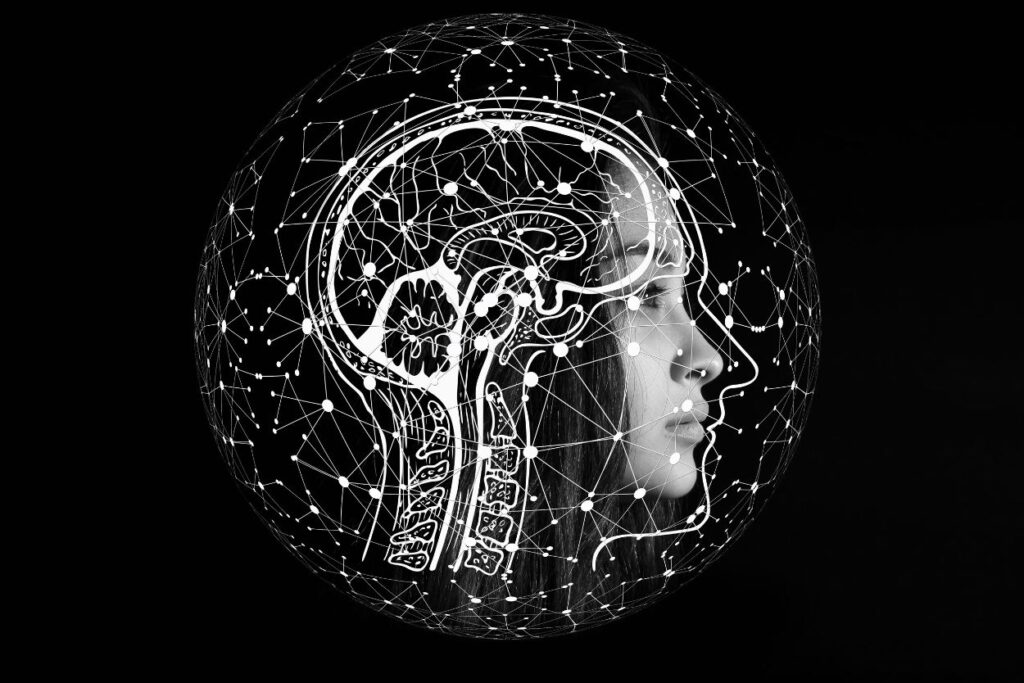

We kindly inform you that Cortivision Sp. z o.o. is conducting a project titled "BrainHolter – An Innovative Autonomous fNIRS System for Long-Term Brain Activity Monitoring," with support of the European Union Funds.
Project overview
Cortivision is undertaking an ambitious R&D initiative titled BrainHolter, aimed at developing an autonomous functional near-infrared spectroscopy (fNIRS) system for long-term brain activity monitoring. The project focuses on industrial research to advance automated fNIRS data processing and experimental development to create a fully autonomous fNIRS system.
The breakthrough innovation of BrainHolter lies in introducing fNIRS as a new modality for continuous brain monitoring, similar to how EEG, EMG, and ECG are used today. The system is designed to function independently—without constant supervision from researchers—and provide automated signal analysis, eliminating the need for manual data processing.
Target Group
The BrainHolter system is designed for research organizations and institutes, businesses, including those from the Lublin region. The target users operate in fields such as:
- Scientific research in clinical applications
- Sports performance monitoring
- Extreme environmental applications
Key Outcomes
The core outcome of the project is the development of an automated signal processing framework tailored for long-term fNIRS monitoring. This innovation is crucial for the creation of an “EEG Holter equivalent” for fNIRS, offering users insight into changes in brain activity over extended periods.
The BrainHolter system will be a globally unique product, as no current fNIRS solutions provide uninterrupted hemodynamic brain activity recording for at least 12 hours.
Project Stages
The project is divided into two main phases:
1. Industrial Research:
– Stage 1: Development of multiple automated signal processing algorithms using state-of-the-art machine learning techniques to determine the most effective data processing approach.
– Stage 2: Creation of a device prototype capable of long-term brain activity recording, essential for collecting data to test automated processing algorithms.
– Stage 3: Development of a special fNIRS cap ensuring comfort during prolonged monitoring and rapid application, based on ergonomic research involving test subjects and operators.
– Stage 4: Laboratory testing of the developed device prototype to validate the performance of the algorithms.
– Stage 5: Development of the researcher interface and cloud-based service for data collection, storage, and processing.
– Stage 6: Creation of the first version of a mobile application for monitoring brain activity during long-term recordings.
2. Experimental Development
– Stage 7: Integration of all components into a final prototype, refining both hardware and software based on findings from the research phase.
– Stage 8: Validation of the complete system under real-world conditions to ensure effectiveness and usability.
Funding and Support
The BrainHolter project is co-financed by the European Union under the European Funds for Lublin 2021-2027 program, Action 1.3 – Research and Innovation in the Business Sector.
– Total project value: PLN 2,729,014.06
– EU funding: PLN 1,982,615.45
– Contract number: FELU.01.03-IP.01-0107/24-00
Project is performed in Lublin, Poland.
BrainHolter represents a significant advancement in neurotechnology, paving the way for non-invasive, long-term brain monitoring solutions. With its autonomous functionality and automated data processing, it has the potential to revolutionize how we study brain activity, supporting applications in neuroscience, medicine, and human performance research.
Wojciech Broniatowski, CEO of Cortivision